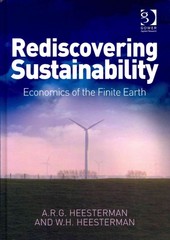Question
I need to finish an essay on Which theory of political economy (i.e. economic liberalism, mercantilism, or structuralism) best explains the global economy as it
I need to finish an essay on Which theory of political economy (i.e. economic liberalism, mercantilism, or structuralism) best explains the global economy as it currently exists? Is the global economy changing toward something else? In either case, why?"
How can it be improved, and what could my next two topic sentences be?
Here it is:
The Global Free Market Reigns Supreme: Word Count -
The global economy is ruled by markets. Those who opt out of global trade suffer. Most nations understand the economic benefits of free trade and see it as the best means for economic growth, which has proven true since their engagement in the free market economy. Globalization is not a zero-sum game. As the global economic pie keeps growing, most participating nations keep increasing their wealth. Economic liberalism is the theory that is best suited to describe the status of the global economy at the present time. Yet, the dynamic character of the global economy has resulted in the creation of new issues, which in turn has led to the growth of economic nationalism as a major component in global economic policy.
Globalization has shaped the past several decades of our global economy. Economic liberalism became entrenched in the economic powerhouses of the world, and their next project in the mid-1980s was to promote a free market global economy. "While Neoliberalism was spreading in the mid-1980s, the United States and other industrialized countries began promoting globalization - the extension of economic liberal principles the world over - as a process that would boost economic growth and bring democracy to those nations integrated into this capitalist structure." (Balaam and Dillman, 38) Globalization is the product of economic liberalism as it is a free market. The 1990s created a new economy, one market where everyone had a stake, but no one had control. The history of engagement with the US and China has created so much prosperity and so much intertwined dependency. For instance, China cannot lose Apple as a customer, as that would be bad for both parties. China enabled a competitor because it is good for China's production and assembly industry. There are many other examples like this, Microsoft, Intel, and Tesla, just to name a few. Furthermore, government-backed funds like pension funds invest in foreign countries and entities. Consequently, international companies and currencies are able to be invested in stock exchanges worldwide. Globalization still remains strong to this day as transnational corporations' global supply chainsof physical and monetary assets are well supported by their governments. "Economic ideas don't only come from academics, international organizations, and politicians. They also accrete from everyday actions of ubiquitous markets." (Balaam and Dillman, 117) The economic ideas a nation chooses to enact are directly influenced by the global market. The global market has a huge anchor on how they choose to operate. Nations have economic incentives and need to participate in the global market. Countries that choose to stay on the sidelines pay a heavy price. Nations do not have enough citizens to buy all their products, they do not have enough resources to supply their citizens with the things needed to be a high-functioning society in the 21st century, and they will not benefit from the job creation that comes with producinga surplus for other nations to consume.
Freedom of enterprise is strong around the world. Free enterprise has been and is allowed to expand at will. Many entrepreneurs have and continue to take advantageto build prosperous corporations for themselves, creatingconsiderable wealth for their stakeholders.Many of these high-net-worth individuals from all over the world congregate and work together in the interest of furthering each other's interests. Theyidentify as the transnational capitalist class.The IPE textbook describes this class as such, "they control most global financial assets and most of the stock in TNCs listed on exchanges around the world. What makes them different from capitalists before the 1970s is that they make money globally, not just in one national economy. It is joined by a growing number of billionaires and millionaires from the BRICS countries and other emerging nations." (Balaam and Dillman, 85) Global enterprises are supported and growing and hold considerable leverage and influence, increasing their representative nation's ties to the global market. Theycontinue to have a significant influence onglobal economic policy. The financial elite do this through funding their political campaigns and movements of choice, "Moreover, the wealthy, who dominate the media and fund political parties and think tanks throughout the industrialized democracies, heavily promote laissez-faire policies." (Balaam and Dillman, 42) The wealthy want to influence the governments of their respective nations to implement free trade policies so they can continue to utilize the business benefits of globalization. Companies' resources are allocated globally as they outsource production to more cost-effective locations, and they store their wealth in more tax-friendly nations. Furthermore, countries invest in each other by buying bonds which incentivizes them to help that nation's economy grow.
Nation's central banks and treasuries utilize foreign investment, which makes the global economy interconnected in what is part of the global market.
Thanks for taking the time to read this.
Step by Step Solution
There are 3 Steps involved in it
Step: 1

Get Instant Access to Expert-Tailored Solutions
See step-by-step solutions with expert insights and AI powered tools for academic success
Step: 2

Step: 3

Ace Your Homework with AI
Get the answers you need in no time with our AI-driven, step-by-step assistance
Get Started


